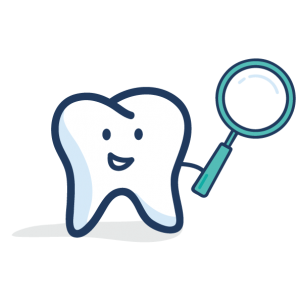Skip to content
Resources for Parents & Caregivers
What will happen at the first dental visit?
- Your child will sit in your lap
- The parent will sit facing the dentist or dental hygienist.
- The child will lie facing you with his or her head in the dentist or dental hygienist’s lap.
- You will be able to hold hands with and talk to your child.
- Your child may fuss or cry, but that is ok. It makes it easier to see inside the baby’s mouth. The exam will be over in just a few minutes.
- Click here to read more about the Age 1 dental visit.
If your child is older, he or she may sit in the dental chair for a gentle exam
During your visit, the dentist or hygienist may:
- Clean your child’s teeth
- Provide a fluoride treatment
- Perform an x-ray
- Make suggestions on how to best care for your child’s mouth
- Schedule you for your child’s next appointment
Getting and Losing Teeth
When teeth start to appear
- Baby teeth usually start to appear between 4-7 months of age. The lower teeth usually come in first. Once your baby’s teeth appear, it is time to start brushing them with a smear of fluoride toothpaste on an infant sized toothbrush. A smear of toothpaste is the size of a grain of rice.
- At 4 years old, your child’s jaw and facial bones will likely grow to make space between the baby teeth so that adult teeth have room to come in.
Losing Teeth
- Between the ages of 6 and 12 years, your child will start losing baby teeth. During these years, your child’s smile will have both adult and baby teeth. When teeth fall out, they can fall out in any order.
- Tooth Eruption Chart
Adult Teeth
- Usually the middle teeth (central incisors) are the first to come out around age 6 to 7 years.
- The ones on the sides of the middle teeth (lateral incisors) come out around age 7 or 8.
- Molars and canines can be lost at any time after age 8, and will be gone by age 9 to 12.
- Around age 12 years, your child will have a set of 28 permanent, adult teeth.
- Be sure to inspect your child’s teeth for signs of decay. If you see something that concerns you, call a dentist right away.
